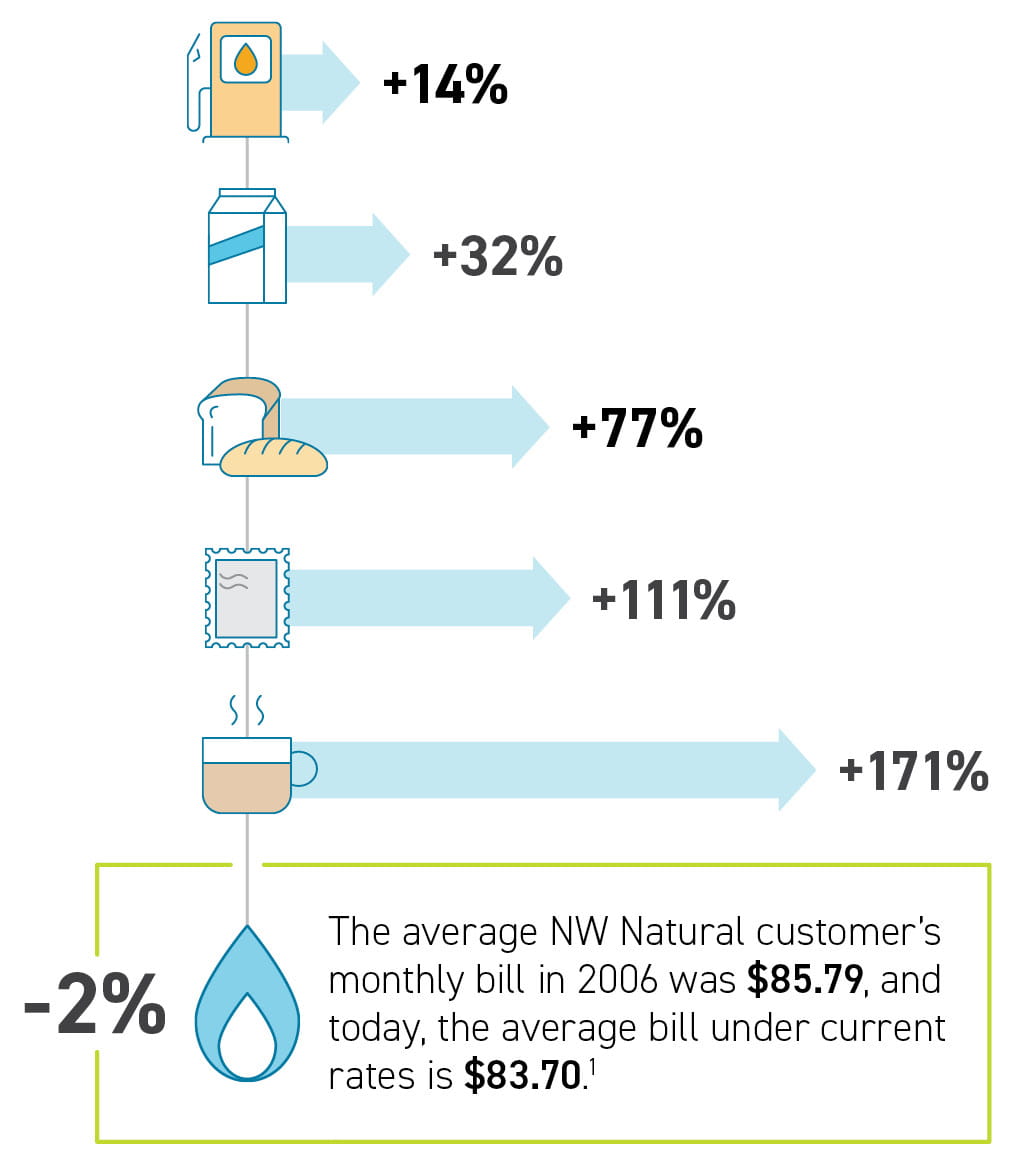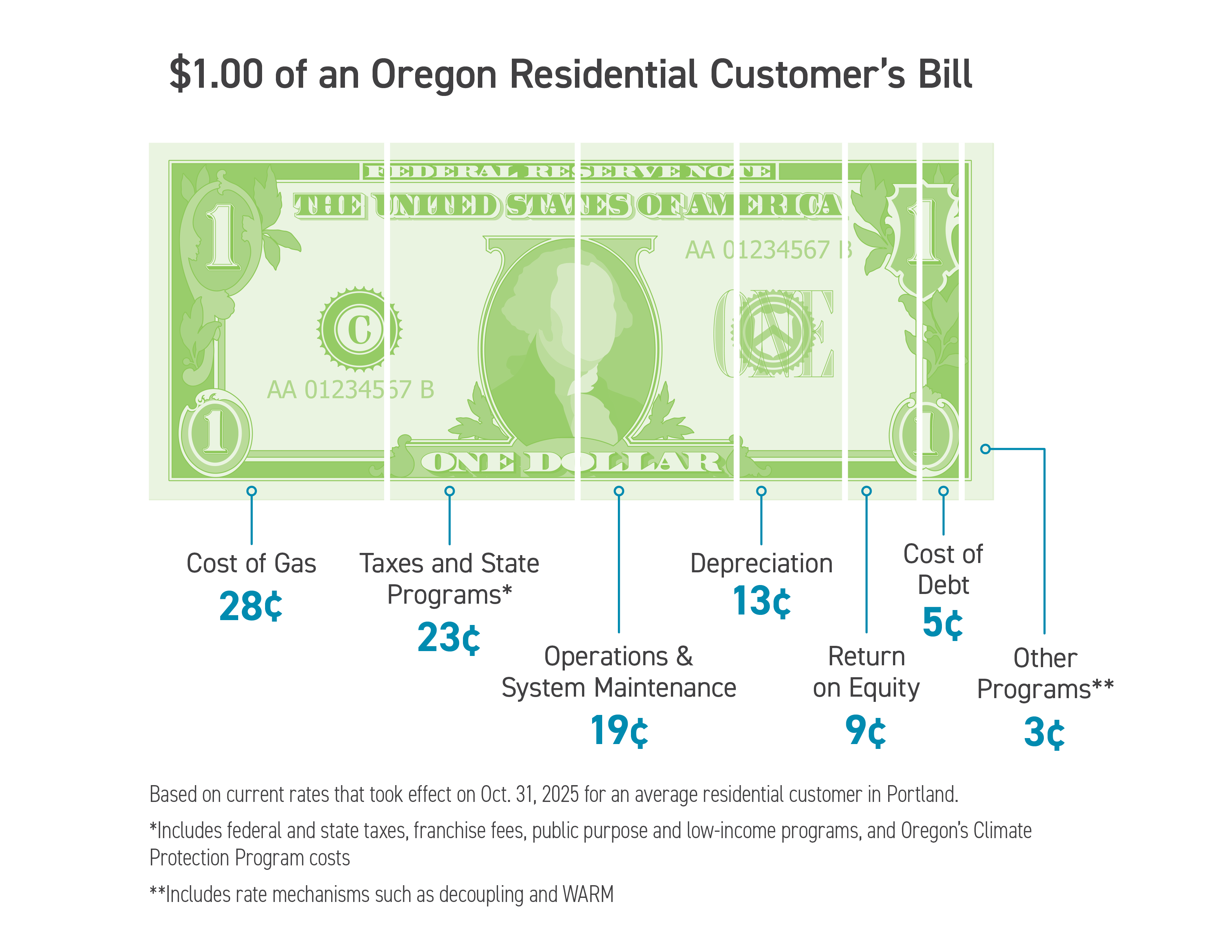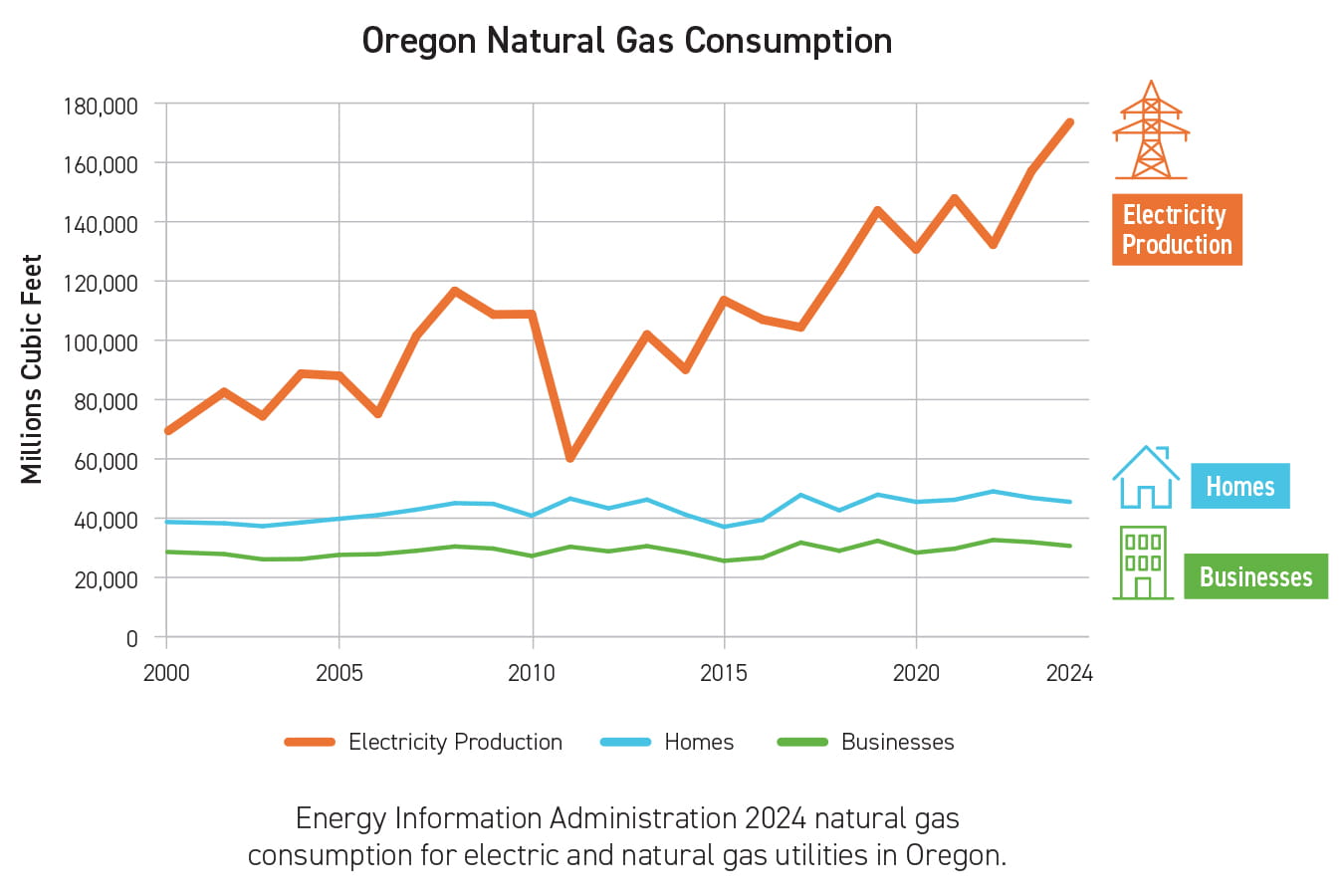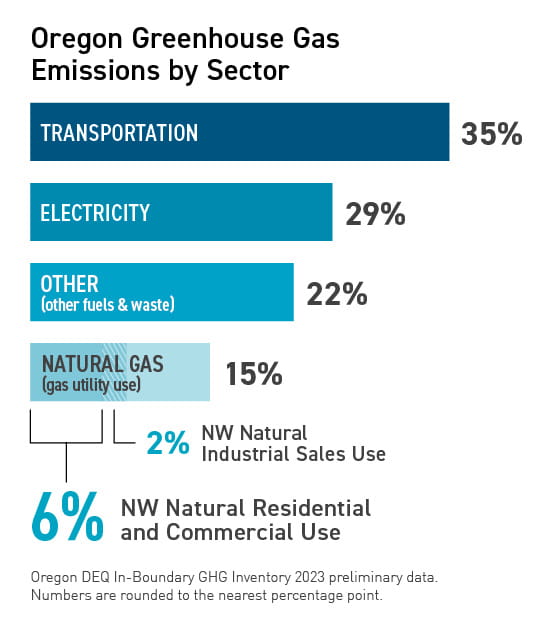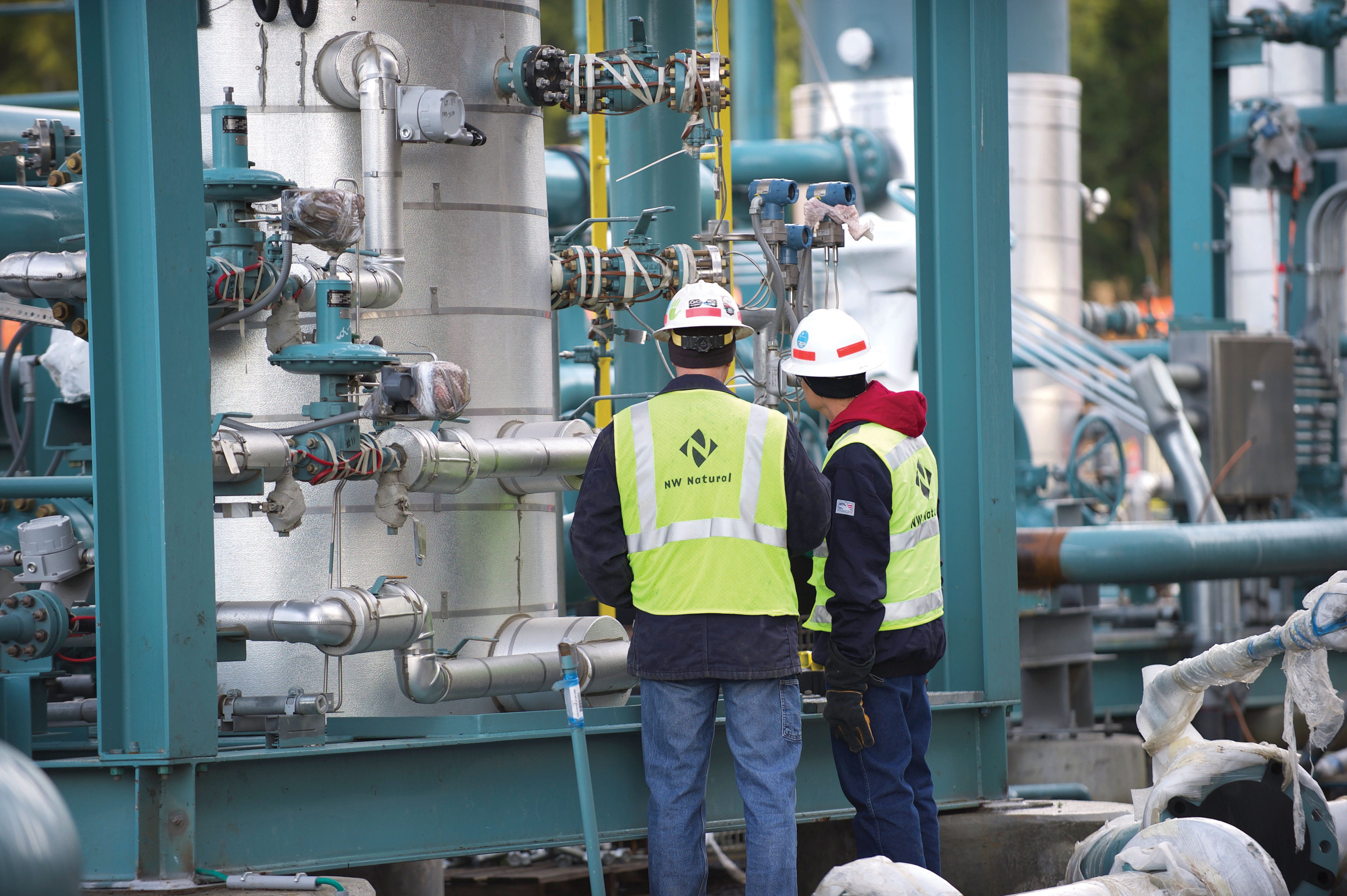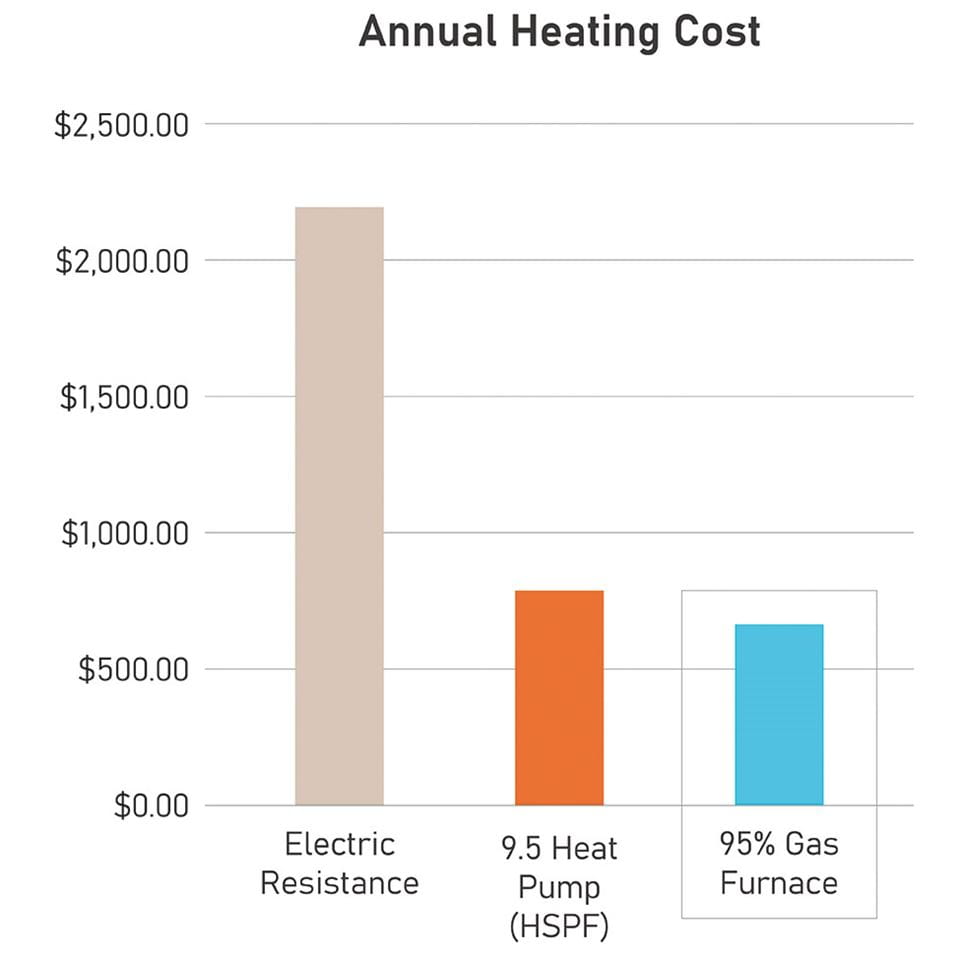Discover the Benefits of Natural Gas
Affordable, Reliable, and Efficient
Affordable
The average residential customer bill over a year is about the same as it was 20 years ago.
Efficient
Reliable
We design and maintain our system to stand up to extreme winter weather. In fact, NW Natural’s system in Portland is meeting 90% of our residential space and water heat customers’
energy needs during the coldest winter days. The week-long icy, cold weather conditions in January 2024 put our region to the test and left more than 700,000 electric customers without power in our service territory.
Fortunately, many natural gas appliances were able to operate when the power was out, providing much needed back up heat, hot water, and the ability to cook for our customers while electric company employees worked tirelessly to bring the power back on. Gas generators provided whole-home energy and kept businesses running, including hospitals and nursing homes.
Efficient use of our storage facility has also helped us return about $280 million in bill credits to our customers over the last 20 years.
Natural gas furnace or electric heat pump?
Heating equipment is an important investment for a home—and there are many factors to consider, including operating costs.
For most NW Natural customers, natural gas furnaces are cheaper to operate than electric heat pumps under a variety of operating conditions and equipment comparisons. The orange bar in the Annual Heating Cost chart shows electric heat pump operating costs assuming the equipment runs at stated manufacturer efficiency levels. However, data from Energy Trust of Oregon and the Northwest Power & Conservation Council show that in real-world conditions, heat pumps are underperforming for a variety of reasons, including weather, installation complexities, and consumer temperature preferences. [2]
Energy Trust study results show energy savings from electric heat pump upgrades were 30% to 50% lower than expectations.
When heat pumps underperform, the cost advantage shown in the chart would widen even further in favor of gas furnaces.
About this chart: The electric costs use blended rates for Portland General Electric and PacificCorp where NW Natural has an approximately 88% customer overlap. Costs do not include other service areas with different electricity costs. See below for more source information.
Do heat pumps inherently offer more efficient cooling than AC?
No. You can purchase air conditioners with the same cooling efficiency of heat pumps—and you’ll pay less for the unit.
Sources
[1] National data from Bureau of Labor Statistics and U.S. Postal Service. NW Natural monthly bill comparison is based on average residential natural gas bills in Oregon and Washington from 11/1/2006–11/1/2007 versus 10/31/2025–11/1/2026. The figures are an average and for comparison and informational purposes only; customers’ actual bills may differ.
[2] Energy Trust of Oregon, Summary of Recurve Analysis of Ducted Heat Pump Conversion Impacts, March 2020, available at: https://www.energytrust.org/wp-content/uploads/2021/04/Summary-Memo-of-Recurve-Ducted-Heat-Pump-Conversion-Impacts-Final.pdf; Energy Trust of Oregon, Billing Analysis of Residential Ductless Heat Pump Installations, August 2024, available at: https://www.energytrust.org/wp-content/uploads/2024/08/FINAL-REBA-DHP-Report-Memo-with-Output-Summaries.pdf; Regional Technical Forum, Air Source Heat Pump Measures, March 2025, available at: https://nwcouncil.app.box.com/v/Mar2025RTF-ASHPReviewPPT
[3] 2023 Oregon Utility Statistics Report, available at: https://www.oregon.gov/puc/forms/Forms%20and%20Reports/2023-Oregon-Utility-Statistics-Book.pdf
[4] Oregon DEQ In-Boundary GHG Inventory 2023 preliminary data, available at: https://www.oregon.gov/deq/ghgp/Pages/GHG-Inventory.aspx
